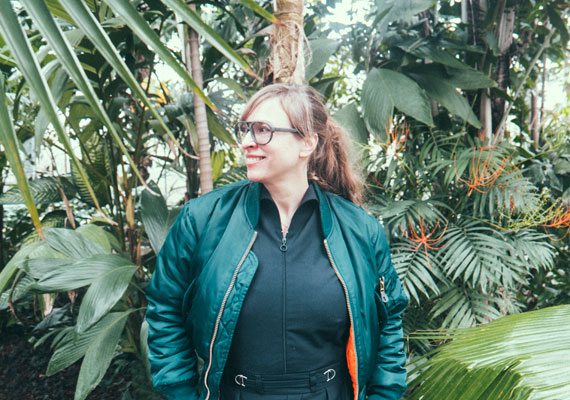Maike Mia Höhne • Programadora, Berlinale Shorts
"El futuro está aquí, el cortometraje tiene mucho más que ofrecer"
por Laurence Boyce
- BERLÍN 2018 (en inglés): Maike Mia Höhne, programadora de Berlinale Shorts, nos propone un vistazo a lo que podemos esperar de la selección de este año

Este artículo está disponible en inglés.
Berlinale Shorts has always been a crucial part of the Berlin Film Festival, offering a series of competition films that push the boundaries of cinematic language. While the competition celebrates the power of the short form in its own right, many previous winners of the Golden Bear for Best Short have gone on to become a powerful presence in the world of features. Amongst them are Palme d’Or winner Ruben Östlund (who won in 2010 for his short Incident by a Bank) and Romanian auteur Cristi Puiu.
Cineuropa talked to Maike Mia Höhne, the curator of Berlinale Shorts, about what we can look forward to in this year’s programme as well as what still excites her about the short form.
Cineuropa: What can we look forward to at Berlinale Shorts 2018?
Maike Mia Höhne: One of our programme’s great strengths is that we get the chance to hear many voices from very diverse realities. In their works, the filmmakers present strategies for self-empowerment. In Russa (Portugal), co-directors João Salaviza and Ricardo Alves Jr tell of the consequences of the inhumanity of the property market, that gold rush of the 21st century. What does it mean when, time and again, people are forced out of their neighbourhoods to make way for society’s most powerful? In Alma Bandida by Marco Antônio Pereira, a young man searches for gems in a pit. These treasures are a synonym for another life – different from the one he is leading on the edge of the Brazilian rainforest. And yes, films are gems, too, wishes and hopes shining out from the big screen!
There are a number of Portuguese films in the competition. What do you think it is about Portuguese cinema that enables it to experience such a ‘golden age’ of short films?
I guess you’re referring to the shininess of the three Golden Bears that have been won over the last seven years for short films by Portuguese directors: Rafa, Balada De Um Batráquio and Ciudade Pequena. They are all fictional movies, making it very clear that there are no limits in fiction. An essay film can include performative elements. What I personally find very interesting is this approach – to understand the power of fiction and free oneself from supposed rules when it comes to telling a story. Success is an interesting form of empowerment, to be encouraged to find that your own way of storytelling might be of interest to many more people.
What kinds of things excite you about short film?
Poems, haiku and miniatures. There are many ways to describe the core of the form. Reading a poem, watching a short, followed by a flash of inspiration, the beauty of being taken away. That is what happens to me. I get inspired to think of a new language, combination, programme, an ephemeral sculpture – a programme with more films, which in the end leads to a new level of understanding of the human condition, or simply the present. The short form inspires me. That is why I really love working with it so much. Rethinking is possible because history meets the present, and all in 80 minutes or 200 minutes, for example. Dropping yourself into the ocean of many ideas leads to new dimensions.
Is it a difficult task to make the shorts stand out at the Berlinale, when there are so many other things going on? How do you strive to give them their own space within the general chaos of an A-list film festival?
Going to a festival is always about making decisions, so people decide what they want to do. Many people decide to watch the shorts at the Berlinale. Screenings of short films at the Berlinale are always sold out, and there is a wonderful energy and spirit in the cinemas. Instead of chaos, I see many people in the cinemas, alleys, all around. Everyone wants to be part of the very special moment when a film is being screened for the first time in front of an audience. This is part of the power of an A-list film festival. We use this power to enlighten people about the beauty of shorts within well-curated programmes, transporting the single film to a higher level within the context of more films.
In general, do you think the short-film scene is healthy at the moment?
Yes, absolutely. Many festivals reflect people’s need for and delight in getting inspired. Culture is the tool to understand the world and oneself. So yes, the short form is a big part of it. Many festivals are also directly engaged in bringing children to the cinemas from an early age. I personally believe, accepting the challenge of a digitised future, that film and filmmaking must be included in the curriculum. It’s a tool for everyone working in art and education. At the moment, we are working on bringing it to the schools. The future is here. The short form has a lot more to offer!
¿Te ha gustado este artículo? Suscríbete a nuestra newsletter y recibe más artículos como este directamente en tu email.
















